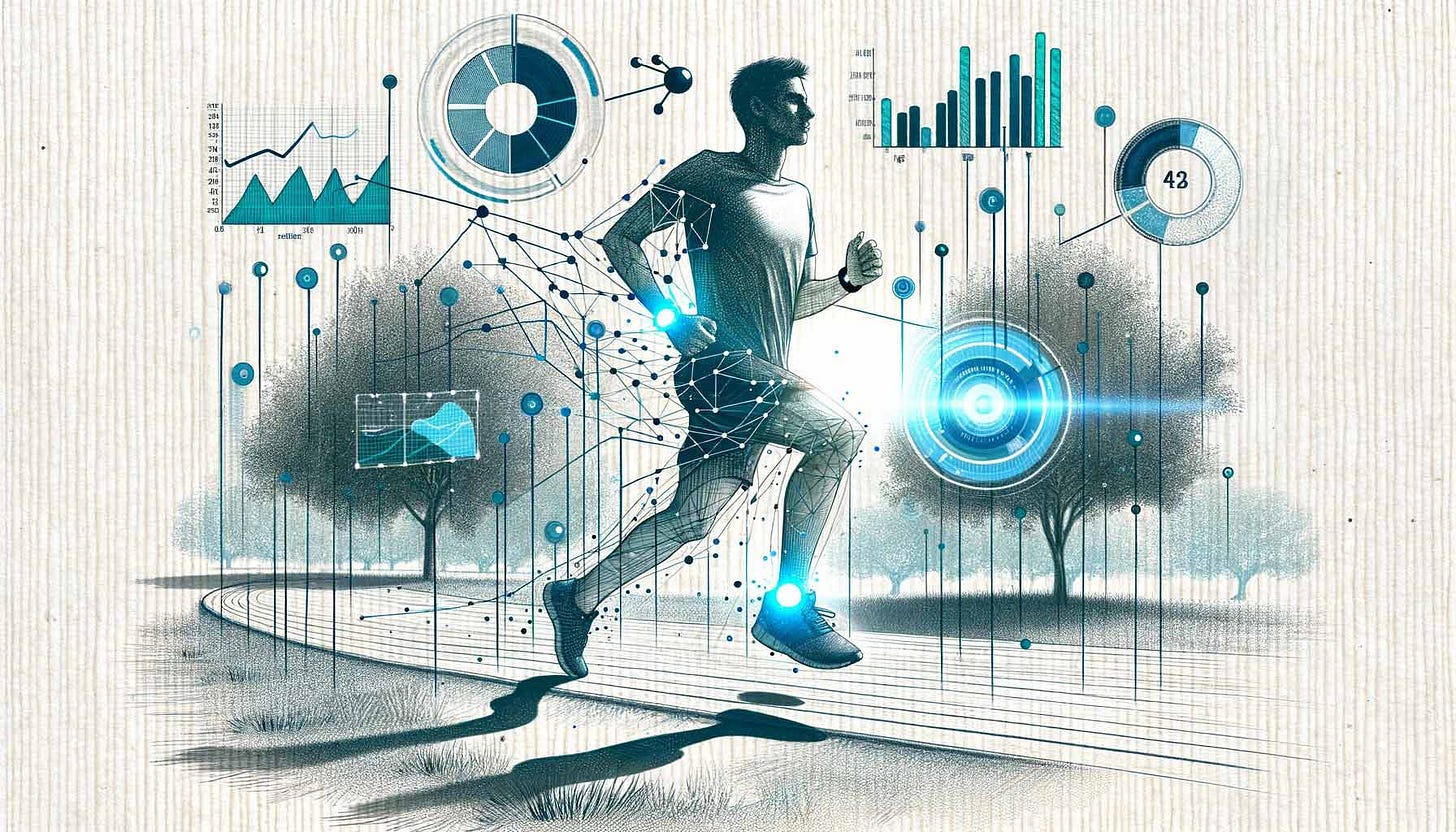Holistic health, an ancient concept, emphasizes that healing is most effective when considering the whole person – physical, emotional, spiritual, intellectual, and social components – as opposed to focusing solely on specific illnesses or symptoms. Traditionally, holistic health was associated with practices like traditional Chinese medicine and Ayurveda, and more recently, it has been integrated into modern healthcare by professionals such as osteopaths, chiropractors, and naturopaths.
In today's rapidly evolving landscape, where AI is advancing at an exponential rate, holistic health takes on a new meaning. Recent conversations we had with founders, investors and corporate innovators at SXSW highlighted how AI influences our holistic well-being, raising questions about how we will use our minds and bodies as AI streamlines workflows in our personal and professional lives, if it will allow us to truly achieve work-life balance, and how we will navigate the spiritual impacts of AI amidst a growing loneliness epidemic. Meanwhile, AI is revolutionizing healthcare by combining quantitative and qualitative insights to enhance diagnosis, preventative treatments, and lifestyle choices.
Last year at SXSW, VSP Vision brought a new diagnostic method called oculomics – a field of study that combines retinal scans with AI to detect diseases like Alzheimer's and diabetes – into the spotlight. This innovative approach views the eyes as a window to overall health. Oculomis has since caught traction, and VSP has been at the forefront of bringing this technology into the mainstream. At our private dinner during SXSW this year, we sat around the table with leaders in healthcare and concluded that if the eyes are the window to your overall health, AI is the key to the front door.
The concept of digital twins also emerged during our dinner as central to the future of health and AI. Imagine an AI-driven avatar that captures real-time vital signs, dietary choices, and stress levels, simulating how changes in lifestyle might affect future health. This technology could transform how we approach wellness, travel, and innovation. We are still many years away from this vision, but today, digital twins are being utilized as virtual models of patients, integrating real-time data from various sources like vital signs, dietary choices, and stress levels. This technology is being applied to simulate health outcomes and predict the effects of different treatments or lifestyle changes.
To achieve the vision of a full digital twin, it requires big thinking and even bigger investment upfront. The motivations driving those who are venturing into this field vary, whether it be to live forever so your children never have to lose you or to eradicate cancer so that you prevent your mother’s health deteriorating in front of your eyes.
Bryan Johnson's work at Blueprint is crucial in gathering the critical data that would create the foundation for the digital twin we aim to develop. By pioneering a protocol to reverse biological aging using advanced technologies like genome sequencing and neural interfaces, he is laying the groundwork for a comprehensive digital twin. This digital twin would capture real-time vital signs, dietary choices, and stress levels, simulating how changes in lifestyle might affect future health. His efforts in leveraging AI and machine learning to redefine health optimization are directly aligned with our vision of creating a holistic digital twin that can transform how we approach wellness and health.
AI-enabled wearables, such as the Apple Watch, Whoop, and Oura Ring, have made significant headway on the quantitative front, commercializing predictive health analytics through devices that allow users to monitor productivity, energy levels, and stress based on metrics like steps, sleep cycles, and temperature. This wave of technology has enabled us to measure the basics of our health and slowly move forward in predictive analysis of energy levels or fatigue, stress, and more.
AI is poised to revolutionize personalized healthcare by tailoring patient experiences to individual complexities. Currently, healthcare often focuses on treating symptoms with standardized treatments, but AI can help uncover more nuanced approaches, reducing potential side effects and enhancing holistic well-being. As AI continues to evolve, it will be the key to unlocking personalized holistic health, ensuring that each individual receives care that is tailored to their unique needs and circumstances.
Check out the website Silicon Foundry’s AI Brings New Meaning to Holistic Health





